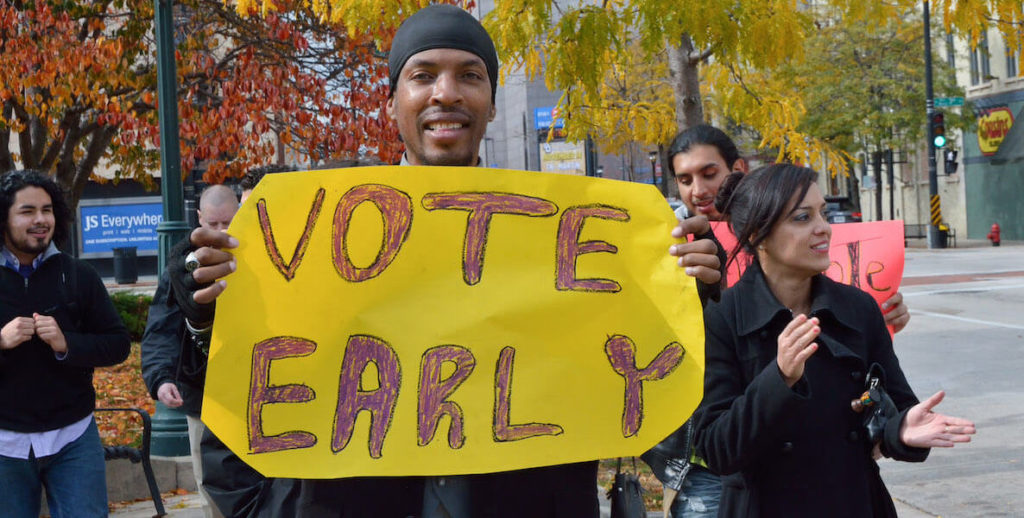Last year, the Pennsylvania state legislature passed Act 77, a package of voting reform bills negotiated between Governor Tom Wolf and legislative Republicans that shortens the voter registration blackout period and creates a new mail-in voting system with one of the earliest early-voting windows in the country.
Now, a new document released by Governor Wolf’s administration providing more guidance on the implementation of Act 77 to county election officials shows that the mail-in voting program has the potential to be even more expansive than initially understood.
During the public debate over Act 77, there was a lot of attention paid to one of the main concessions that Wolf negotiated on behalf of Democrats (without consulting members in the legislature): to eliminate the option of straight-ticket voting. This is believed to provide a modest advantage to down-ballot Democratic candidates.
Notably, the mail-in voting system allows a 50-day early voting period, which begins shortly after Super Tuesday on March 3. Mail-in voters in Pennsylvania can begin voting on March 10.
What was not really appreciated at the time of Act 77’s passage, but seems like a pretty big deal now, is that the application of mail-in voting is much more expansive, as detailed in the new guidance document published by the Wolf administration this week for county election officials.
It turns out that mail-in voting can also be done in-person under certain circumstances, and also that the in-person voting options could be greatly expanded depending on what the city commissioners, Mayor Kenney and City Council want to do. This is the key section:
Voters are permitted to apply in person at a County Election Office (CEO) for a mail-in or absentee ballot…
Voters who apply at a CEO during business hours may request to receive a mail-in or absentee ballot in person while the voter is in the office…
Once the ballot has been finalized and printed, the county board of elections must promptly present the voter with the voter’s mail-in or absentee ballot…
A county board of elections cannot decline the voter’s application for a mail-in or absentee ballot, unless there is a bona-fide objection to the mail-in or absentee ballot application…
Voters who request a mail-in or absentee ballot in person must be provided an opportunity to privately and secretly mark their ballot. Note: The marking of the ballot in secret does not have to take place in the election offices. It can be provided in a nearby location…
Voters are permitted to deliver a mail-in or absentee ballot in-person at a CEO up to 8pm on Election Day.
Translation: Starting on March 10, 50 days out from primary election day on April 28, you can go into City Hall, request a mail-in ballot, fill it out on the spot and hand it in instead of mailing it. This essentially turns City Hall into a 50-day early voting polling station.
And that’s just the baseline scenario. There’s also a menu of Optional County Services where, if more money were made available for it, the city commissioners could station several temporary County Election Offices all over the city where people could complete mail-in ballots in-person.
These temporary offices would need to be staffed by county elections personnel, and could be in “leased properties selected by the county board of elections for processing applications and in-person voting of both mail-in and absentee ballots.”
They’d need to be connected to a secure network and have access to the Statewide Uniform Registry of Electors (SURE) system. The Wolf memo also says counties “may provide for other secure ballot collection locations that the county deems appropriate to accommodate in-person return of voted mail-in and absentee ballots.”
So far, Mayor Kenney and the city commissioners haven’t publicly weighed in on what they think may be possible with such a short amount of time between now and the start of mail-in voting on March 10. The ballot needs to be finalized in time for people to start voting, so the commissioners definitely have their work cut out for them early in the year.
Still, part of the issue comes down to money and staff capacity, and so the mayor and City Council also have a fiscal role to play in deciding how expansively we can apply the Optional County Services during the primary and the general election.
We aren’t going to have the resources to serve every area of the city with early voting stations, so the commissioners may want to select locations in areas where there are known to be delays at the polling stations in order to help divert some of the Election Day traffic to the weekend before, or set up in places with historically low turnout.
The other “secure ballot collection locations” option is also interesting and a little unclear. Does this mean we could potentially have secure ballot boxes placed at local libraries or city recreation centers where people can drop off their ballots instead of mailing them?

